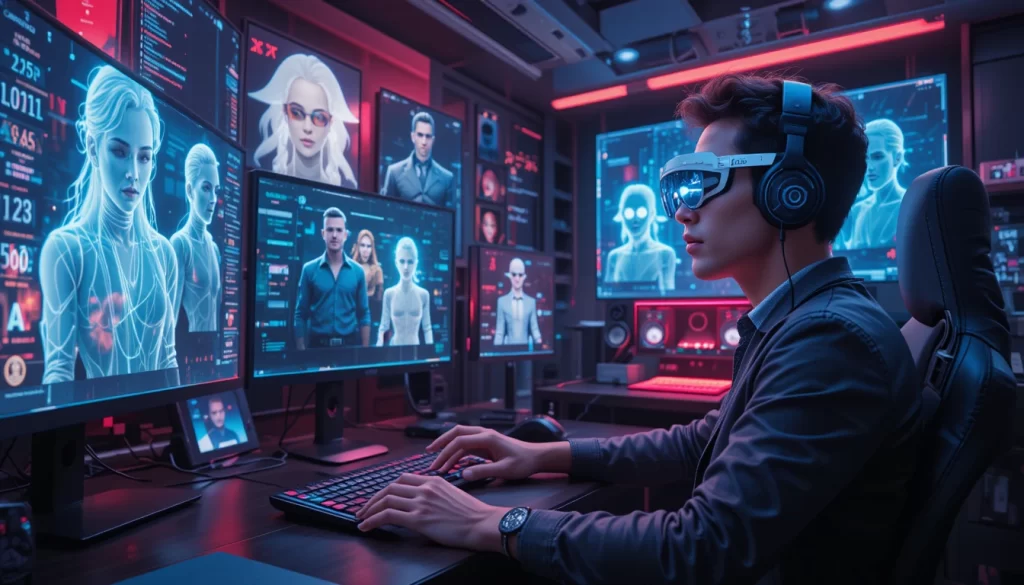The gaming industry is undergoing a seismic shift, driven by the convergence of blockchain technology, decentralized finance (DeFi), and intellectual property (IP) licensing. As Web3 gaming continues to gain traction, one trend stands out as a game-changer: the integration of iconic IPs from Hollywood, comics, and other entertainment mediums into blockchain-based games. This fusion of storytelling and technology is not just a passing trend—it’s the future of gaming.
The Power of Intellectual Property in Gaming
Intellectual property has always been a cornerstone of the gaming industry. From Star Wars to Marvel, beloved franchises have captivated gamers for decades, offering immersive worlds and compelling narratives. However, traditional gaming models often limit player ownership and creativity. Web3 gaming, powered by blockchain technology, changes this dynamic by enabling true ownership of in-game assets and fostering player-driven economies.
By licensing well-known IPs, Web3 games can tap into existing fan bases while offering new, decentralized experiences. Imagine playing a Harry Potter-inspired game where you truly own your wand, robes, or even a piece of Hogwarts as a non-fungible token (NFT). This level of ownership and interactivity is unprecedented in traditional gaming.
Why Web3 Gaming Needs IP Licensing
- Instant Audience Engagement:
Licensed IPs come with built-in fan bases, reducing the need for extensive marketing efforts. Fans of a franchise are more likely to try a game that features their favorite characters or worlds, providing Web3 games with a ready-made audience. - Enhanced Storytelling:
Iconic IPs bring rich narratives and lore that can elevate the gaming experience. Web3 games can leverage these stories to create immersive, player-driven worlds where users can shape the narrative through their actions. - Monetization Opportunities:
IP licensing opens up new revenue streams for both game developers and IP holders. Players can buy, sell, and trade in-game assets, while developers and IP owners earn royalties from secondary market transactions. - Cultural Relevance:
By integrating popular IPs, Web3 games can bridge the gap between mainstream entertainment and blockchain technology, making decentralized gaming more accessible and appealing to a broader audience.
Challenges to Overcome
While the potential is immense, integrating IP licensing into Web3 gaming is not without its challenges:
- High Licensing Costs: Securing rights to popular IPs can be expensive, potentially limiting smaller developers.
- Regulatory Hurdles: Navigating the legal complexities of IP licensing across different jurisdictions can be daunting.
- Fan Expectations: Fans of iconic franchises have high expectations, and any misstep in adapting their favorite worlds to Web3 could lead to backlash.
Despite these challenges, the rewards far outweigh the risks. The success of early Web3 games like Axie Infinity and The Sandbox demonstrates the potential for blockchain-based gaming to disrupt the industry. By incorporating well-known IPs, Web3 games can accelerate this disruption and bring decentralized gaming into the mainstream.
The Role of Hollywood and Entertainment Giants
Hollywood studios and entertainment giants are beginning to recognize the potential of Web3 gaming. Major players like Disney, Warner Bros., and Marvel are exploring partnerships with blockchain platforms to bring their IPs into the decentralized world.
For example, Disney has already dipped its toes into the NFT space, and Warner Bros. has experimented with blockchain-based collectibles. As these companies deepen their involvement in Web3, we can expect to see more collaborations that blend storytelling, gaming, and blockchain technology.
The Future of Gaming Is Decentralized
The future of gaming lies in the intersection of Web3 and IP licensing. By combining the creativity of Hollywood with the innovation of blockchain, developers can create games that are not only entertaining but also empowering for players.
In this new era, gamers will no longer be passive consumers but active participants who own and shape the worlds they love. Whether it’s wielding a lightsaber in a Star Wars universe or building a city in a DC Comics-inspired metaverse, the possibilities are endless.
Conclusion
Web3 gaming is poised to revolutionize the industry, and IP licensing is the key to unlocking its full potential. By leveraging the power of iconic franchises, developers can create immersive, player-driven experiences that resonate with both crypto enthusiasts and mainstream audiences.
As Hollywood and blockchain continue to converge, the future of gaming will be defined by creativity, ownership, and decentralization. The question is no longer if Web3 gaming will dominate the industry, but how soon it will happen.
